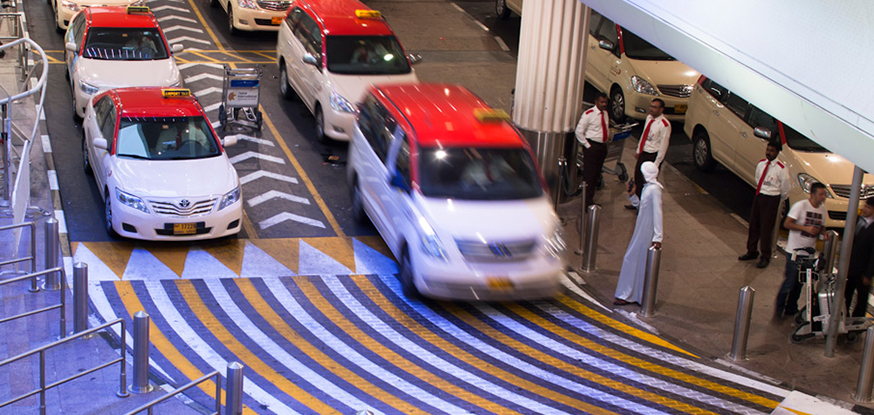Dubai's Roads and Transport Authority (RTA) is launching a Smart Time Management System (STMS) at venues of various events such as exhibitions and conferences. The system enables RTA to get real time data on numbers of visitors and accordingly deploy the appropriate number of transit means. It also enables passengers to get information on the number of available vehicles along with the expected waiting time.
H.E. Mattar Al Tayer, director general and chairman of the board of executive directors of RTA, hailed the STMS, which reflects RTA's endeavors to realize the vision of H.H. Sheikh Mohammed bin Rashid Al Maktoum, vice-president and prime minister of the UAE and ruler of Dubai. It also echoes the directives of H.H. Sheikh Hamdan bin Mohammed bin Rashid Al Maktoum, Dubai crown prince and chairman of the executive council, to support the smart city drive and rank Dubai as the smartest city in the world.
"To realize these objectives, RTA is seeking to deliver services that exceed customers' expectations and make them happier. RTA is keen to continue improving customer services and reducing the waiting time in line with the world's top practices," commented Al Tayer.
The idea of the STMS was conceived in the context of RTA's endeavors to streamline management of events and queues and deliver excellent services, especially as Dubai plays host to more than 500 events per year. It will also ensure the smooth entry and exit of visitors, and the availability of transit means, which are among the key success factors of any event.
RTA team has made a series of field visits to event venues in Dubai to get first-hand feedback and assess customer needs for taxis. The team has then conducted a comprehensive study of venues to identify challenges encountered by clients when ordering taxis during events.
Accordingly, the idea of the system popped up, and it has been tested in two events held at the Dubai World Trade Center for seven days. About 12,000 clients have benefited from the system in both events (at a rate of 1700 clients per day). The system has also been tested in one of the Dubai Mall entries for two days. Results of both trials showed a drop in the waiting time for taxi riders and a rise in customers' satisfaction rating.
The system comprises of screens placed at the start, middle and end of the queue, a device for counting visitors and sorting out the type of service required at the start of the queue, and a device to measure customers' satisfaction rating. It also has a computer server, cameras to read the number plates of taxis at the entry and exit points of the event, and horizontal cameras for remote monitoring of the event.
The system has a unit for monitoring smart mobile events in the form of a vehicle fitted with smart technologies, sophisticated monitoring cameras, and two smart offices to facilitate the communication with the Booking and Control Centers as well as supporting government entities. This unit contributes immensely to the streamlining and monitoring of passenger transport services in mega-events. In future, it will be linked with the Smart Transportation Center to serve more than 23 other events.
It is noteworthy that taxis in Dubai (Dubai Taxi, Hala Taxi and Franchise Company Taxis) have picked up 87.849m passengers in the first half of this year.

